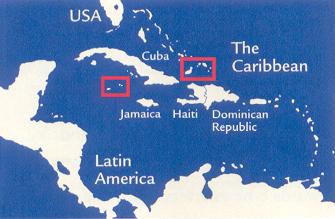
 Cayman Islands– The IOR is built on secrecy. It keeps secret accounts, does no audits and claims to destroy records after ten years.
Cayman Islands– The IOR is built on secrecy. It keeps secret accounts, does no audits and claims to destroy records after ten years.It offers secret accounts to many who “have had problems with the law,” said one of its past presidents. There are no cheque books. Everything is done by transfer, by cash or in gold bullion, so as to be untraceable. This is perfect for money-laundering. The Vatican Bank has quietly established itself in the offshore financial centre of the Cayman Islands.
The Vatican Bank escapes scrutiny from Italy. In addition, it has an impenetrable organisation, with three separate boards of directors. And it boasts another curious feature: it is said to be “never audited”, hence funds deposited there may simply vanish without a trace. The Vatican Bank even maintains that it adopts the remarkable practice of destroying all of its records every ten years.
On the one hand, it has used its “less than clear” relationship to the Vatican State to claim “sovereign immunity”. This connection with the Vatican State has enabled it to avoid having to answer charges in a US court that after WWII it helped hide and launder millions of dollars of concentration camp loot. And it continues ― when convenient ― to assert its immunity from scrutiny as an organ of the Vatican State. Thus in September 2010 a Vatican spokesman claimed that “The IOR is located within the territory of Vatican City State, beyond the jurisdiction and surveillance of various national banks”.
And, in addition, this “off-shore” tax haven appears to have its own “off-shore” havens. Curious is the location of two of the Church’s “independent missions”. These are missions too small to be set up as apostolic prefectures, yet which are still given autonomy, and thus are not part of any diocese. There are nine “independent missions” worldwide, most of them in remote areas with a sparse Catholic population, like Azerbaijan and Tajikistan. However, two of them have been hived off from pre-existing dioceses. These are the Cayman Islands and the Turk and Caicos Islands, both of them offshore financial centres.
It is difficult to use pastoral needs to explain the Vatican’s decision to excise the Cayman Islands [in 2000] from its natural Jamaican diocese of Kingston, in order to proclaim them missio sui juris [“independent missions”] under the direct control of the Holy See and entrust them to Cardinal Adam Joseph Maida, a member of the IOR board.
For every person in the Cayman Islands, there are two companies and about five investment funds registered there. In 1998, however, the Organisation for Economic Co-operation and Development began cracking down on tax havens.
Q. What is a tax haven? A. Any country that offers low rates of tax to attract business is to some extent a tax haven. The real problem is that many countries refuse to release details on suspected tax dodgers to other countries.
Even after a decade of prodding by the OECD, the Caymans and Turk and Caicos Islands have remained on the list of “promise to do better” tax havens. Another curious fact is that in 1998, the year the OECD started to examine tax havens, the administration, (and presumably its financial records) of the “independent missions” in the Turk and Caicos Islands was moved from neighbouring Nassau away from the Caribbean to, of all places, Newark, New Jersey. “Due to its proximity to New York, Northern New Jersey in particular has become susceptible to the money laundering industry.”…Guess where Newark is.
Of course, none of this has stopped the Pope from attacking tax havens for robbing the poor and laying the blame for the global financial crisis at the door of “offshore centres”.
If you are interested in researching more about the Vatican, please read The Vatican Empire written by Nino Lo Bello, a former New York Times Business Reporter.
Paul Collins, author of Mack Dunstan’s Inferno
To contact him, go to: http://www.facebook.com/authorpaulcollins
You can publish this article on your website as long as you provide a link back to this page.

Be the first to comment